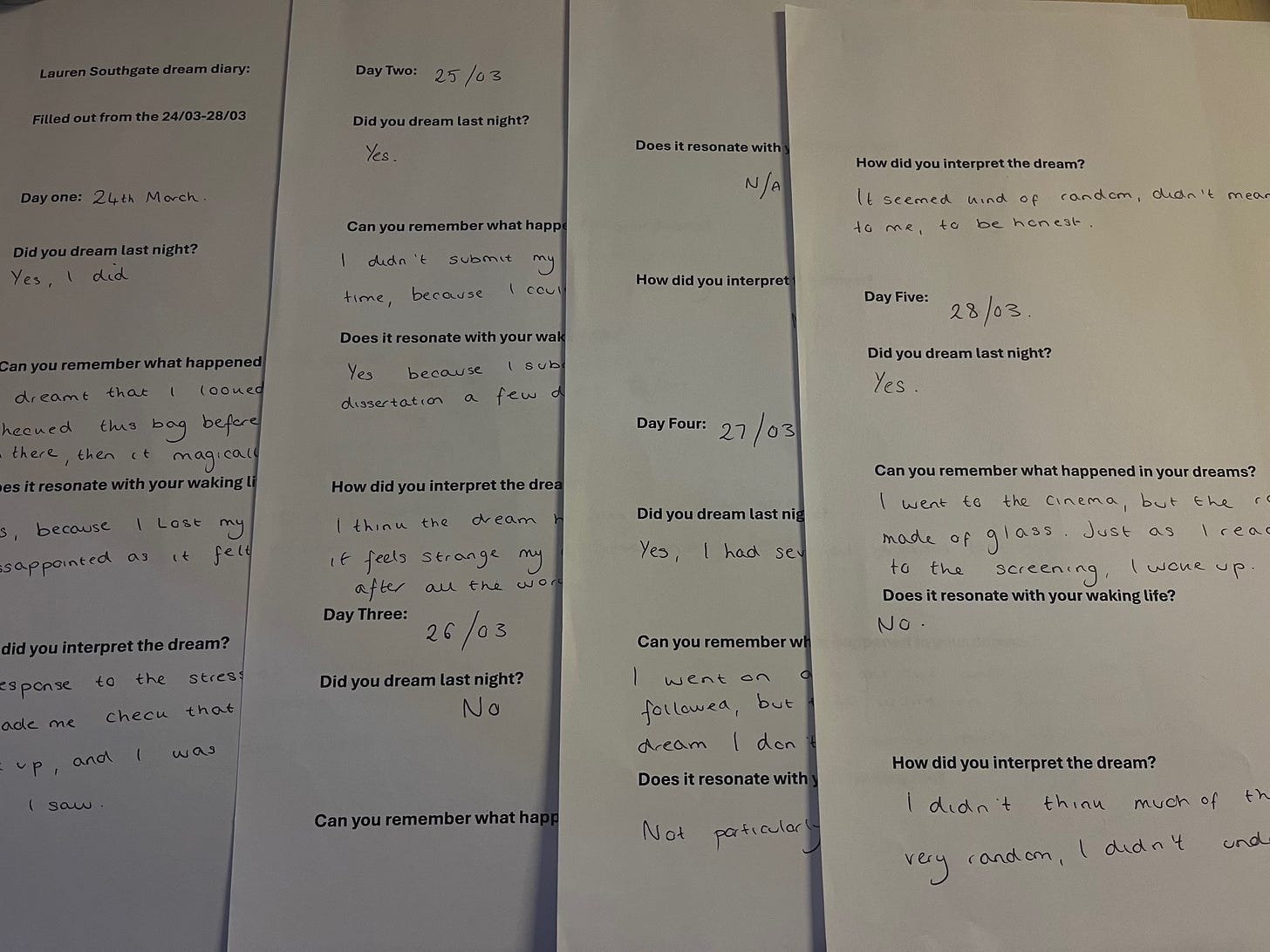Dreaming in the age of AI: How technology is shaping the future of our nighttime adventures
For centuries we have looked for meaning in our dreams- now, with Artificial Intelligence (AI) and social media, are we decoding our dreams in a whole new way?
Dreams. They can be totally random, or scarily real, but do they hold a deeper meaning? According to SleepHealth Foundation, we dream every single night, even if we don’t remember it! Our brains remain active throughout the night, which begs the question: what do our dreams really mean, and how can we make sense of them through AI interpretation?
‘Dreams tell us a lot about how the brain perceives the world’- Ian Wallace
‘Most breakthroughs in psychological understanding have come from studying dreams,’ dream psychologist and best-selling author Ian Wallace explains. So where has the interest in dreams originated from, and how has this continued to translate into modern day life?
The search for meaning in our dreams has fuelled centuries of interpretation and discovery. The ‘oldest evidence of dream interpretation was found on stone tablets from ancient Mesopotamia and Egypt’, but how has dream interpretation progressed from this early stage? Psychoanalyst Sigmund Freud ignited the conversation about dreams, and the true meaning behind an individual's subconscious. For Freud, every dream was meaningful, he believed that dreams express our deepest desires, but also our unfulfilled wishes. Who would have guessed that our dreams could reveal a hidden world of thoughts we never knew existed. Moving away from Freud and his book ‘The Interpretation of Dreams’, how has dream interpretation changed in the modern world?
With the continuing growth of Artificial Intelligence (AI) comes the digital twist on dream interpretation, offering an instant analysis. Let's be honest, we have all heard of Chat GPT, but have you heard of DreamyBot, DreamMeaning AI and Dream Interpreter AI. These are three examples of AI- powered tools that promise to decode your dreams at the click of a button. To better understand the impact of AI dream interpretation on traditional dream interpretation practices I spoke to dream psychologist and best-selling author Ian Wallace.
Ian Wallace, also the chief psychologist for an AI startup explains that ‘AI collects lots and lots of data, but it is in the form of narrative and words, scraped from the web’. He states that although AI information is readily available, ‘the generated information is often quite delusional, or confabulates all the information’. During the interview, we got an exclusive peek into the dream interpretation AI softwares Ian has been developing. Labeled as ‘curious technology’ check out the video below to learn more about this exciting software being released on Ian Wallace’s website soon!
AI is reshaping our understanding of what happens when we sleep, but how does AI interpretation align with our personal interpretation of our own subconscious? To put AI dream interpretation to the test, I asked Lauren Southgate, a dream enthusiast, to keep a dream diary for five days, to record her dreams and personal interpretations. I then copied the dreams into the AI dream interpretation software ‘DreamyBot’ to see if the AI interpretation aligned with Lauren’s own reflection of her dreams.
On day one of the dream diary, Lauren dreamt she found her passport after losing it, in a bag she had already checked. In the dream diary Lauren explained that this aligned with her waking life because the previous weekend, she lost her passport. Lauren interpreted the dream as a form of disappointment, as it felt so real. I copied the exact wording of the dream into DreamyBot and received a different analysis. The AI tool said the dream reflects anxiety about a perceived loss of control, explaining that ‘the subconscious is telling you to revisit past experiences’. I spoke to Delphi Ellis, author of Answers in The Dark: Grief, Sleep and How Dreams Can Help You Heal to understand her opinion of this analysis. ‘AI sources its answers from a wider database’ she explains, ‘the interpretation of this dream could apply to anyone’.
The dream that stood out to me the most from the dream diary was day two, Lauren explains that she dreamt she didn't submit her university dissertation on time, because she was unable to find her laptop. Lauren explained that this resonated with her waking life because she submitted her dissertation a few days before, explaining that she believed the dream happened due to stress and anxiety. The analysis from DreamyBot aligned well with Lauren’s own personal interpretation, explaining that dreams often amplify anxieties, when things are out of your own control.
‘You happen to the dream, and you create everything that you experience in it’- Ian Wallace.
As people continue to embrace the wonders of AI, through dream interpretation, it leads me to question how our understanding of dreams will continue to evolve in the future. With social media hashtags such as #dreamtok trending, online communities are creating spaces for individuals to share their dreams. Social media and AI are making dream interpretation more accessible , Delphi Ellis believes that ‘more people will turn to AI to explain their dreams’ supporting Ian Wallace who explains ‘there will be a plethora of dream analysis apps’.
‘Dreams are a really healthy way of understanding yourself, and the most organic and natural way for self-development’- Ian Wallace.
However, both Ian Wallace and Delphi Ellis emphasise the importance of the dreamer, Delphi Ellis emphasises that ‘the best person to interpret the dream is the dreamer, as dreams are so heavily influenced by their own window of the world’.
Dream interpretation will continue to take on new dimensions, in a world full of algorithms and social media, fresh insights into our subconscious will continue to grow. Next time your head hits the pillow, and your dreams begin, ask yourself, how would AI interpret this?







Here's a free https://aidreamscope.com/dream-interpreter Dream Interpreter. I made. It's built on a lot of research and includes some of my own takes. Feel free to check it out!